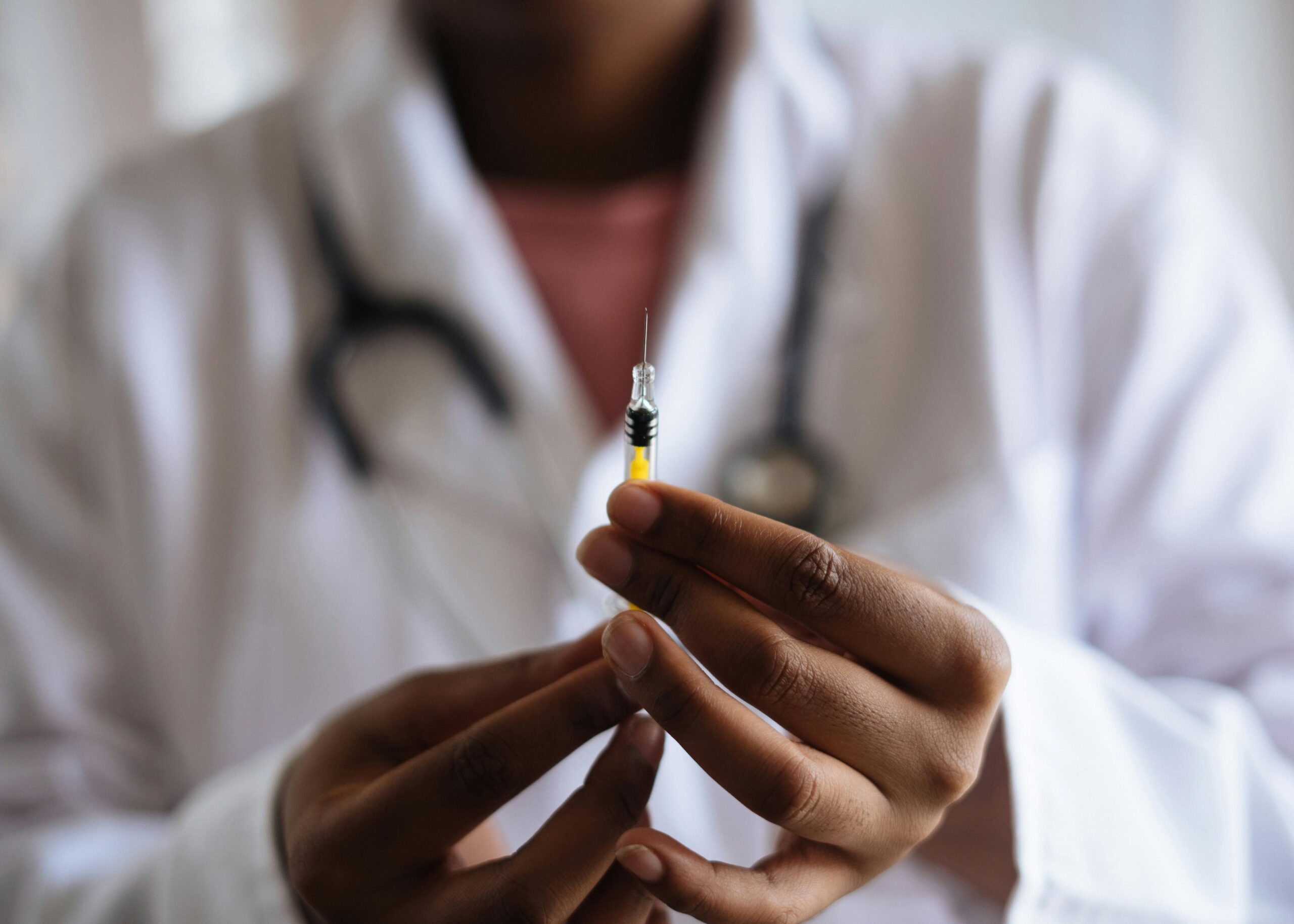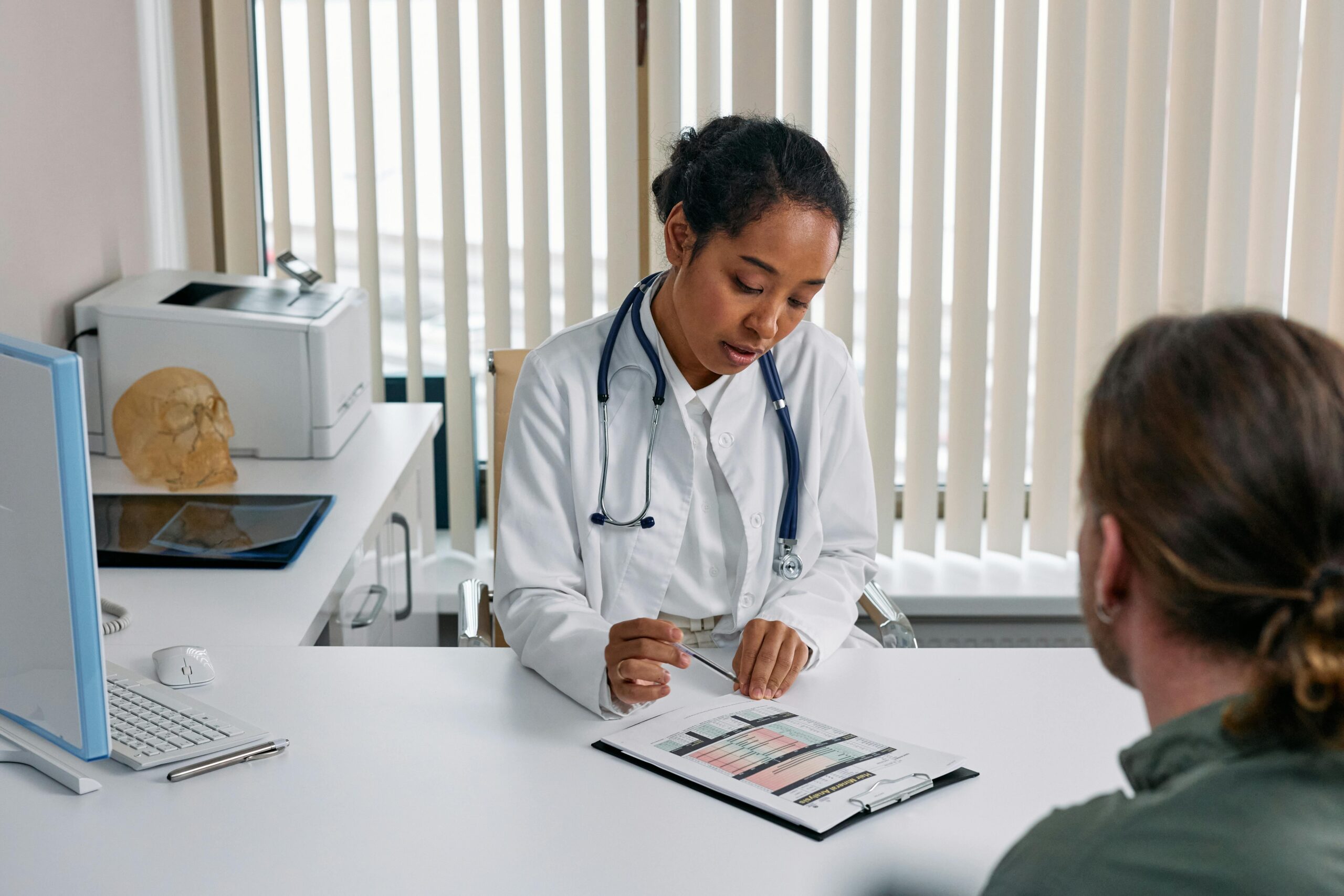HPV is a commonly transmitted viral infection1 and is the main cause of most cervical cancer cases worldwide.2 In India, 1 out of 13 reported cases is HPV related.3 HPV infection and its related cancers can be prevented with a vaccination.2 Recently, I had the privilege of talking with Dr. Anbukkani Subbian, a leading Gynecological Oncologist based in Coimbatore, to discuss the importance of HPV vaccination and its role in preventing cervical cancer. Join us as we delve into the depths of this conversation.

GCI Pharma
Can you tell us more about HPV vaccination?
HPV vaccination acts as the body’s frontline defence, shielding it from HPV infection and other associated diseases and cancers. As per studies, HPV vaccination has been shown to help reduce the risk of genital warts and certain HPV-related cancers by up to 80%–90%.4
What is the ideal age to get HPV vaccination?

Pexels
Emphasizing the importance of early vaccination, Dr. Subbian explained that anyone between the ages of 9 and 45 can receive the HPV vaccination. Between the ages of 9 and 15, two shots of the vaccine are needed. It is better to get the vaccine at a younger age since it provides a stronger immune response and better protection against HPV infection. Between ages 16 to 45, three doses of vaccines are administered to offer full protection.5 Additionally, for someone in their 30s, along with the vaccination, the doctor recommends PAP smear and HPV DNA tests once every three years and five years, respectively.6
For women who are sexually active, can they take the HPV vaccine?
The doctor stressed the importance of early vaccination, ideally before sexual activity begins, to maximize its protective benefits. “According to studies, vaccination before HPV exposure, i.e., the first sexual contact, can provide a high protection rate of more than 90%.1 However, this does not mean that sexually active women do not need the HPV vaccine. HPV infection peaks during the most productive periods of a woman’s life7, which means that even if you haven’t received your HPV vaccine yet, you should. Women in the reproductive phase can benefit greatly from HPV vaccination and prevent the progression of infection to precancers.”
What do you think is the biggest misconception/myth about cervical cancer?
Most cervical cancer cases are caused by HPV infection.2 Addressing myths surrounding cervical cancer and HPV infection, Dr. Subbian highlighted that people often think monogamous individuals are immune to HPV infection and cervical cancer, but that isn’t the case. She clarifies that the virus can affect anyone who has engaged in sexual activity. Furthermore, she emphasizes that sexual activity doesn’t only mean penetrative sex but includes oral sex and even skin-to-skin contact between partners or intimate contact can lead to infection.2
When we talk about young girls, their mothers are the decision-makers, so what advice would you give to mothers to go and get their daughters vaccinated?

Pexels
My advice to them would be, if there’s one cancer in the whole spectrum of cancers that has a vaccine, then why not? India is one of the largest contributors to cervical cancer cases worldwide.7 When a woman is affected by cervical cancer, it reduces their chance of having a baby and adds to the stress of cancer treatment. You don’t want your child to go through that. And if by giving a single injection to your 15-year-old child, you can reduce that risk by 95%, what else can you give your child, says Dr. Subbian.
Leading organizations like WHO (World Health Organization), CDC (Centers for Disease Control and Prevention), ACOG (American College of Obstetricians and Gynecologists), RCOG (Royal College of Obstetricians and Gynecologists), FOGSI (The Federation of Obstetric and Gynecological Societies of India), recommend HPV vaccination for girls for protection against preventable cancers such as cervical cancer.7-12 Dr. Subbian further added, “HPV vaccines are safe and thousands of women in India have taken the vaccine since it became available 15 years ago. It has mild side effects like soreness or swelling at the injection site, as in case of any vaccination.”
While wrapping up the conversation, Dr. Subbian reiterated the importance of early vaccination for adolescent girls and regular screenings for adults. She emphasized the need for ongoing education and awareness efforts to effectively combat cervical cancer.
“Issued in public interest in partnership with MSD Pharmaceuticals. This information is for awareness only. Please consult your doctor for more information.”
References:
1. Cheng L, Wang Y, Du J. Human Papillomavirus Vaccines: An Updated Review. Vaccines (Basel). 2020 Sep; 8(3): 391.
2. HPV and Cancer. National Cancer Institute. Adapted from: https://www.cancer.gov/about-cancer/causes-prevention/risk/infectious-agents/hpv-and-cancer [Accessed on 24th May 2024]
3. Ramamoorthy T, Sathishkumar K, Das P, et al. Epidemiology of human papillomavirus related cancers in India: findings from the National Cancer Registry Programme. Ecancermedicalscience. 2022 Sep 7:16:1444.
4. CDC. Reasons to Get HPV Vaccine. https://www.cdc.gov/hpv/parents/vaccine/six-reasons.html [Accessed on 28th May, 2024]
5. HPV Vaccine Schedule and Dosing. https://www.cdc.gov/hpv/hcp/schedules-recommendations.html [Accessed on 24th May 2024]
6. Jain MA, Limaiem.F. Cervical Squamous Cell Carcinoma. Treasure Island (FL): StatPearls Publishing; 2024 Jan-.
7. Kaarthigeyan K. Cervical cancer in India and HPV vaccination. Indian J Med Paediatr Oncol. 2012 Jan-Mar; 33(1): 7–12.
8. HPV Vaccination Recommendations. Adapted from: https://www.cdc.gov/vaccines/vpd/hpv/hcp/recommendations.html [Accessed on 24th May 2024]
9. ACOG. Human Papillomavirus Vaccination. Committee Opinion 809, Aug 2020.
10. WHO. Cervical Cancer: Adapted from: https://www.who.int/news-room/fact-sheets/detail/cervical-cancer [Accessed on 24th May 2024]
11. FOGSI GCPR Screening and Management of Preinvasive Lesions of Cervix and HPV Vaccination. Adapted from: https://www.fogsi.org/wp-content/uploads/2018/03/FOGSI-GCPR-March-2018-final.pdf [Accessed on 24th May 2024]
12. RCOG responds to cervical screening changes in Wales. Adapted from: https://www.rcog.org.uk/news/rcog-responds-to-cervical-screening-changes-in-wales/ [Accessed on 24th May 2024]



